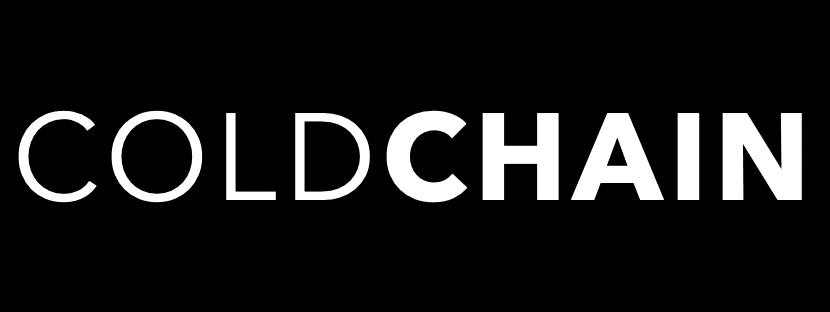It’s common for new technology and innovations to bring much excitement, anticipation, but also fear and uncertainty.
In my mind, this is certainly the case when I think about blockchain technology and the birth of cryptocurrency. There is still very little regulation within the crypto space, which in the past has led many scams, resulting in some traditional marketing channels banning blockchain and crypto related ads.
Over the last few years crypto projects have had to navigate their way around restrictions which include blocking of ads by Google, Facebook, Twitter & YouTube as well as unfavourable algorithms making it hard for projects to be found. This ultimately resulted in alternative marketing channels being built and used to reach target audiences.
Marketing channels aside, audiences of crypto projects are somewhat different than other tech industries, a common misconception when looking to go to market. A different audience requires a different means of promotion and targeting within the crypto space.
Here I explore the main differences between crypto and traditional companies when it comes to digital marketing in terms of channels, audience and marketing strategy, for existing projects and those preparing for ICO.
A “brief” history of blockchain & crypto
Before we dive in and look at the differences in digital between crypto and traditional markets, it’s only right that we take a quick look at how we got here (Crypto aficionados feel free to skip this part!)
So, how did it all start?
Well, blockchain was developed in 2008 by pseudonymous developer Satoshi Nakamoto, realising a whitepaper for blockchain and conceiving bitcoin. Since then, blockchain has taken the digital world by storm, from revolutionising the way transactions are recorded to being the basis for cryptocurrency to develop.
Blockchain tech has already made an impact on industries around the world but it’s still early days and many believe it has potential to disrupt every industry over the next decade. As a result of Bitcoin, in recent years we’ve seen the likes of Ethereum and thousands of altcoins (alternative coins), with varying use cases as well varying success.
Not just bitcoin…
Of course, we know Bitcoin is the main player when it comes to crypto, well at least in terms of marketcap and mainstream exposure. However, there are so many other sectors in the blockchain and crypto space that stretch way beyond being a medium of exchange and payment method.
There are smart contracts (think Ethereum), Centralised exchanges (Coinbase, Binance), Decentralised finance, which include decentralised Exchanges, Borrowing and Lending protocols and many more, and stablecoins (think Luna and UST…or maybe not), NFTs, the list goes on….
Each sector and the projects within are powered by blockchain technology, with the ability to infiltrate the mainstream. As I discussed in my last article about NFTs blockchain technology has the potential to replace existing processes in business such as supply chain, to name just one.
The rise of blockchain tech!
Over the last few years, we’ve seen a dramatic rise in crypto and other blockchain related assets such as NFTs. This is new ground and the unprecedented demand required new and cleaver promotion tactics which understand the industry.
The goal or driving force behind crypto projects is similar to traditional companies in tech or otherwise, which is to develop data driven brand awareness and offer a product or service of value to a customer or client.
But there’s a difference…
Crypto could easily be typecast as just another “technology product or service” and as such marketers may decide to deploy conventional digital marketing strategies to promote a blockchain or crypto related project, just as they would another company in tech.
This would be a mistake – although there may be some similarities between crypto projects and other tech companies on the surface there are many differences and as such different marketing tactics need to be explored.
So where to start? I’ll dive into audience, channels and the tactics best suited to this industry, as well as where SEO comes in play.
Audiences in blockchain and crypto
Just as traditional organisations cater for B2B (business-to-business) & B2C (business-to-customer), and the specific audiences who live within these, from IT leaders to retail buyers – the blockchain and crypto industry has its own target audiences.
Smart contract projects (like Ethereum) may be looking to grow their ecosystem by attracting and onboarding defi projects such as decentralised exchanges, borrowing and lending or payment protocols to use their tech and become part of their ecosystem. Whereas the decentralised exchanges and borrowing and lending projects may be looking to attract retail investors.
In effect we can look at the target audiences or end users in two ways – traditional users and crypto users. Let’s break these two audiences down.
Traditional audience
As discussed earlier, blockchain technology has impact outside of the crypto and NFT space and is already being used across many industries, we just expect this to grow in the coming years. There a crypto project may have need to tailor their messaging to traditional (non-crypto) audience.
For example, a regular business may be a utilising a blockchain technology from crypto project, perhaps a textile supplier working with Vechain for recording and verifying data on the supply chain. If we think about the marketing team at Vechain communicates the service, features and benefits to an Exec at a multinational textile company compared to how they communicate their tech to a potential “customer” who is also in the blockchain industry, it will be quite different.
It’s especially different when we think about how traditional users are likely to discover blockchain tech solutions, which is usually on traditional social media channels such as LinkedIn. They will also look for familiar content that is presented in traditional ways, like white papers and webinars, which is described in layman’s terms with use cases they can relate to.
Crypto audience
On the other hand, if you’re a layer 1 blockchains like Ethereum, your clients defi projects such as Uniswap and Compound or basically any crypto sector we have discussed needing to use Ethereum smart contacts to build. The point is that these “Customers” will have a very technical understanding of blockchain technology, as such the marketing is different. The channels used may even be different in some instances and we will look at this later.
Buyer personas
When it comes to buyer personas and the process of developing these two customers, it becomes a very important exercise for blockchain and crypto projects to conduct. Splitting these two user groups and looking at the different needs, interests, motivations, channels, and demographics will allow crypto projects to put together a highly personalised digital marketing strategy targeted to the right customers.
Digital marketing channels in blockchain and crypto
Traditional, regular, conventional, mainstream marketing channels, whatever you want to call them! Having worked in digital for many years, with some exceptions, you can be sure that whatever sector you work with, from IT to E-commerce there are certain marketing channels that are a staple.
These industry standard channels include LinkedIn, twitter, YouTube and Facebook. Within blockchain and crypto projects these channels still have a large presence, but they are not the only tools used. Let’s take a look at the most useful channels projects can use to reach their audience.
- Twitter – Ok, so this is still a major channel when it comes to blockchain and crypto projects! It’s important projects still invest in their company page and feed, replying to questions and engaging with the community. This channel is important for brand positioning, announcements, and thought leadership.
- YouTube – Again, a traditional marketing channel but still a big fish when it comes to video content for crypto projects. Projects should think of it a visual, easy to consume way to describe some of the tech heavy content from whitepapers. Video content great for quality search engine rankings.
More “decentralised” marketing channels
As much as Twitter and YouTube are still popular marketing channels in the world of blockchain and crypto, there are many lesser-known channels that are heavily used. Many not know to the mainstream.
Let’s discuss the top 4:
- Telegram – WhatsApp for crypto right? Well, No. Telegram is the no.1 messaging and community management app a go-to app for all things crypto. Most blockchain and crypto projects manage their communities via Telegram these days. Community is king is crypto and the app allows projects to add bots and community managers to for two-way communication.
- Discord – But there’s competition! Discord offers the same features as Telegram, but a but less spammy. In recent times there has been a big shift in crypto projects from Telegram to Discord. Community experience has sharped this with projects able to devote more time to conversating and answering questions, not just deleting spam.
- Reddit – In crypto marketing you have to follow the people. With thousands and sometimes millions of the crypto community being part of groups on Reddit, projects needed to pay attention and add this as part of their marketing strategy. Many projects now have their own dedicated groups on Reddit.
- Medium – The biggest blog site in crypto. It’s strange to find a project these days that don’t use Medium for blogs, thought leadership and press releases. Whereas traditional industries may use WordPress or HubSpot, in Blockchain it’s Medium.
I’ve only named a few alternatives, many of you reading this will be wondering why I didn’t list more. Well, the list is extensive. So why so many?
Crypto: forced to explore new channels
Let’s go back in time! The prominence of crypto during the 2017 bull market facilitated a breeding ground for scammers, using Google and social media to promote fake projects (selling the dream), tricking retailer investors and performing a “rug pull” – running away with their money.
Billions of dollars were stollen in 2018 and this led to large marketing channels like Facebook to crack down on ICOs (Initial coin offerings) from advertising on all of their sites.
This left all of the authentic crypto project being essentially banned from using high profile marketing channels and sparked a need to explore alternative ways to advertise. Marketing teams shifted from traditional channels like Facebook and Instagram and they moved to more decentralised platforms such Discord and Reddit.
A permanent shift…
Facebook has from time to time softened its stance on crypto, but since the decision to move to alternative channels was made, there was no looking back! Telegram, Discord and Reddit remain the backbone for blockchain marketing campaigns to this day. A striking fact is that many digital marketers might not have heard of these channels!
“Blockchain marketing” not digital marketing
In the last year or so I’ve seen the term blockchain marketing banded around more, but not without good reason. Rather than being a catchy name or a fad, it illudes to a new way of thinking by blockchain and crypto projects. Blockchain marketing was born out of the need to support the growing and ever evolving tech and applications coming out of blockchain, for instance from crypto projects.
We have to acknowledge that business-to-business (B2B) and business-to-customer (B2C) still exists within blockchain marketing. However, these two concepts do not cover all aspects of blockchain, which brings me to Community to customer (C2C)!
Community-to-Customer (C2C) marketing
This is an interesting model. Community is so important in blockchain and crypto, so how can and do crypto projects channel this energy for promotional purposes?
Using a podcast or video stream a crypto project could host an event with their founders, marketing team, devs and team up with partners, related projects, advisors within their ecosystem to discuss topics within blockchain and connect with their respective audience. This is truly Community-to-Customer (C2C).
Another way this model works is via holders of governance tokens for example. Frequently we see thousands of token holders in specific crypto groups on reddit or discord passionately promoting crypto projects. Essentially, the community turning potential customers into the community!
In both cases, the notion of C2C marketing for blockchain is really interesting to me.
Blockchain marketing strategies
When it comes to identifying the right audience and the right channels to promote, implementing the right strategy is the last piece of the puzzle.
This is never more important than when a new crypto project is going to conduct an ICO. An initial coin offering (ICO) is very similar to an initial public offering (IPO) – it’s essentially the crypto version. Crypto projects often do an ICO when they are looking to fundraise, enabling both public and private investors to purchase a percentage of their governance token.
Let’s look at 10 essential strategies for projects conducting an ICO and existing projects –
- Social Media Marketing – Once a project has nailed down their buyer personas and channels, they need to build a community. Being successful as a crypto project means marketing yourself well on social, with consistent engagement with the community, providing updates, generating a buzz via the chosen channels. Be it Twitter, Reddit, Discord, Medium, etc.
- Influencer marketing – Definitely a new age strategy that has paid off well for many projects in the blockchain space. It’s important to build and maintain strong relationships with crypto influencers on YouTube, twitter and crypto specific marketing channels. This allows projects to develop influencer marketing campaigns to get messaging out there, build hype and importantly, trust.
- Airdrop campaigns – This one is important to get right. Whether a crypto or NFT project looking to get more traction, airdropping free tokens or NFTs can be a good way to incentivise and build a community. However, it can also be damaging to a brand and build a false community made up of people just looking for a freebee.
- Email Marketing – A tried and tested traditional marketing strategy, which applies to the blockchain and crypto space. Projects can utilise this strategy, using target emails and direct messaging to tell potential investors and customers about the brand, goals, roadmap and getting them to sign up to newsletters.
- Public relations – PR is something I don’t believe many crypto projects pay enough attention to. By connecting with a number of crypto and tech specific journalists and editors in the crypto and traditional media, projects can reach both traditional and crypto audiences.
- Events & Conferences – Hosting events (online or in person) is a great way to connect with audiences. This can form part of a projects C2C marketing strategy, hosting an event with blockchain founders, related projects and advisors, sharing insights and connecting with the community.
- Thought leadership – Building hype on social channels is important but in order to gain trust projects also need to sit down and write blogs and articles and be seen as a thought leader in the space. Utilising channels like Medium will allow projects to deep dive into their brand and roadmap. Content is king!
- Strategic Partnerships – Strength in numbers! Collaborating or partnering with other blockchain projects, content creators, and media outlets can lead to much growth for a project. It provides a signal to potential investors or customers that the project is trusted and importantly, growing.
- Private & institutional Investors – This one is so important for projects at ICO. Speaking with VCs and understanding how deals are structured should from part of a projects wider marketing strategy. This will help projects understand how to market to specific investors in their content plan.
- Paid ads – Before we look at SEO, let’s consider the importance paid search can have. Projects don’t have to reply on Google or traditional channels for this one either. There are a number of crypto specific media sites that have paid ads structures in place. Using this could be another string to the bow of blockchain projects, to reach the right audience.
What about SEO for blockchain & crypto projects?
We know paid advertising through Google has not been without challenges, with previous bans on ICO adverts to protect naïve investors. For me this means having a great SEO strategy is more important than ever, to be seen as “trustworthy” by search engines and drive organic traffic to content.
In order to do this, projects need to employ blockchain SEO strategies within traditional digital marketing frameworks. Keyword research, content optimisation, authority building, and analytics are the cornerstones of any SEO plan, both in and out of crypto.
Let’s look at these one by one.
- Keyword research – Every business should be doing to this, regardless of industry. Keyword research is the first step towards improving organic traffic. By understanding which keywords target audiences use when searching for services or products will enable crypto projects to specifically target this market.
- Content (is king) – This should fall within the overall marketing strategy of a crypto project, but it’s important to mention here because it’s pointless conducting solid keyword research without the content to match. Strong thought leadership content, not keyword stuffed, thin content or clickbait.
- Authority Building – Crypto projects can boost their domains credibility and authority through link building. Connecting with strong blockchain sites and getting them to link to their site can put projects in good standing. Unfortunately, scams are only growing in the crypto space, so trust is everything.
- Analytics – The crypto space is agile and ever changing, projects need to be too. By having an agile SEO strategy, projects can assess progress. Analytics help projects to see which channels have the best engagement, which drive quality traffic and track ranking.
Of course, this is just scratching the surface of SEO and there are numerous, in-depth techniques that can be deployed to improve visibility online. However, I just wanted to give a taster and highlight the importance of SEO in the crypto space, something many projects forget.
Signing off!
Digital marketing is a full-time job, I know this because it’s my full-time job! The same can be said about SEO, PR and so on. Teams can become stretched if they try to take on too much work, marketing strategies become diluted, inconstancies in content plans, gaps in posting on channels, engagement with audiences decline, SEO goes in the bin (trash) and the cracks start to show.
In an emerging industry like blockchain it’s no surprise that many projects are start-ups with fantastic tech but have very small teams. With many crypto and NFT projects emerging in the last couple of years, fantastic start-ups can get “lost in the noise” so it’s more important than ever to invest in digital or “blockchain” marketing and SEO.
Who’s supporting blockchain projects to produce the right content for the right channels, targeted to the right audience?
Well, there’s many digital agencies out there who “claim” to be able to support, I won’t name any directly, but in reading their services it’s clear they have simply rehashed existing tactics and applied this to blockchain companies. We have discussed why this will not work as effectively.
Don’t get me wrong, there are some digital agencies out there who live and breathe crypto, even work in crypto. They legitimately provide fantastic support from consultancy, GTM strategy, to SEO. My point is they are few and far between. Marketing for blockchain can be world apart (a metaverse apart) from traditional markets. Pun intended!
Different market = different approach
I wanted to write this piece because I started seeing a trend. Innovation in blockchain technology, a move to web3 and more decentralised channels yet digital marketing strategies remaining stagnant. These two should move hand in hand, ever changing and growing together.
It would be shame to see innovations from blockchain projects stifled because they put their money and trust into digital and SEO agencies who were unresearched and overconfident in “existing or traditional” marketing methods and approached digital in the wrong way – missing the mark and not reaching the desired audience.
The same can be said for projects keeping their marketing and SEO in house, different market, different marketing needs to be top of mind.
Final thoughts
Whether a project is just starting out, with a website and discord, getting ready for ICO or building smart contracts to mint NFT’s, being “smart” and savvy with their blockchain marketing strategy will go a long way. This starts with education and familiarising themselves with the evolving market. It will help when making decisions via a marketing agency or in house.
I digress, digital marketing for Crypto projects: Different market = different approach.
More food for thought!



